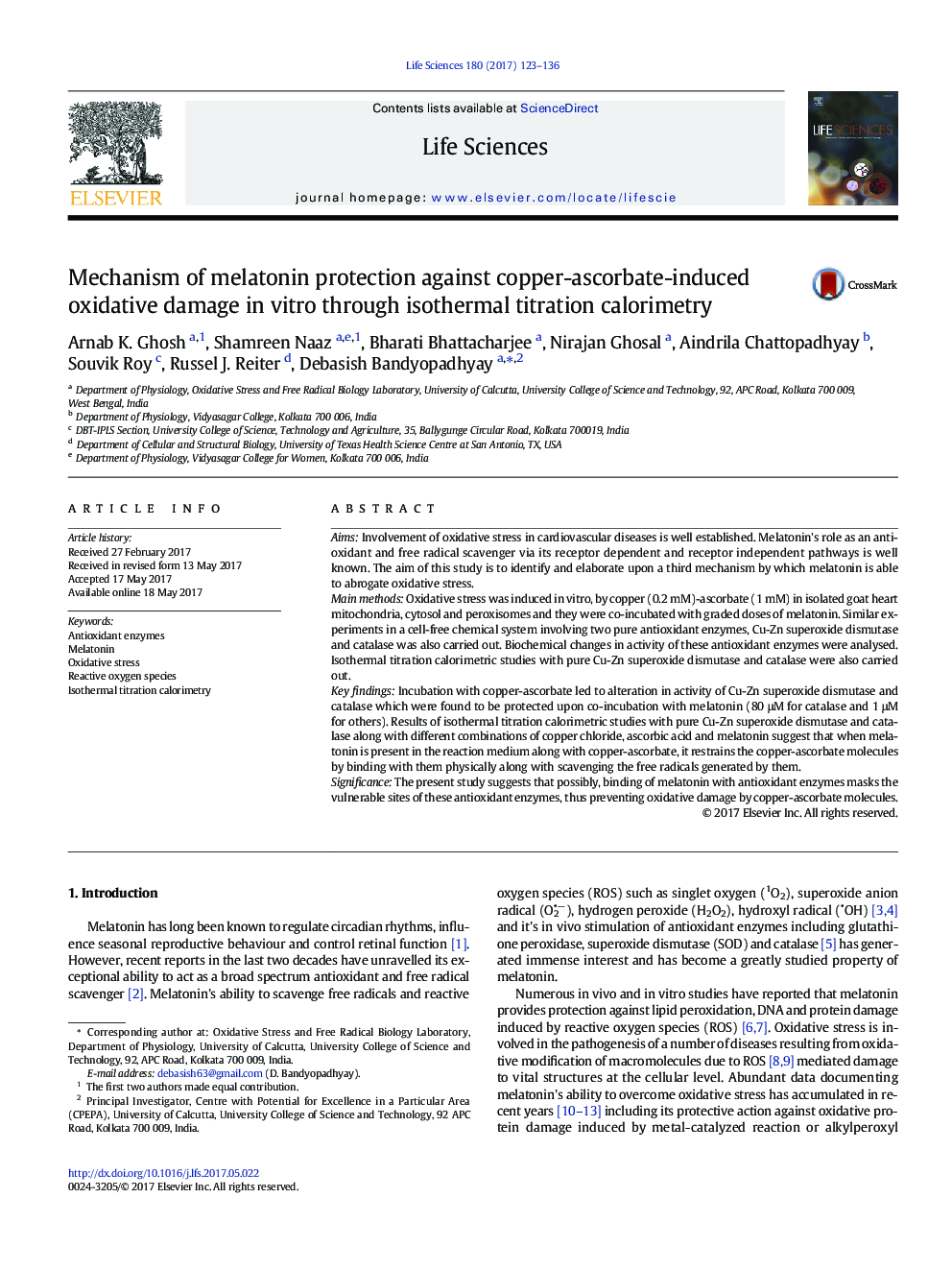| کد مقاله | کد نشریه | سال انتشار | مقاله انگلیسی | نسخه تمام متن |
|---|---|---|---|---|
| 5556781 | 1560548 | 2017 | 14 صفحه PDF | دانلود رایگان |
AimsInvolvement of oxidative stress in cardiovascular diseases is well established. Melatonin's role as an antioxidant and free radical scavenger via its receptor dependent and receptor independent pathways is well known. The aim of this study is to identify and elaborate upon a third mechanism by which melatonin is able to abrogate oxidative stress.Main methodsOxidative stress was induced in vitro, by copper (0.2 mM)-ascorbate (1 mM) in isolated goat heart mitochondria, cytosol and peroxisomes and they were co-incubated with graded doses of melatonin. Similar experiments in a cell-free chemical system involving two pure antioxidant enzymes, Cu-Zn superoxide dismutase and catalase was also carried out. Biochemical changes in activity of these antioxidant enzymes were analysed. Isothermal titration calorimetric studies with pure Cu-Zn superoxide dismutase and catalase were also carried out.Key findingsIncubation with copper-ascorbate led to alteration in activity of Cu-Zn superoxide dismutase and catalase which were found to be protected upon co-incubation with melatonin (80 μM for catalase and 1 μM for others). Results of isothermal titration calorimetric studies with pure Cu-Zn superoxide dismutase and catalase along with different combinations of copper chloride, ascorbic acid and melatonin suggest that when melatonin is present in the reaction medium along with copper-ascorbate, it restrains the copper-ascorbate molecules by binding with them physically along with scavenging the free radicals generated by them.SignificanceThe present study suggests that possibly, binding of melatonin with antioxidant enzymes masks the vulnerable sites of these antioxidant enzymes, thus preventing oxidative damage by copper-ascorbate molecules.
Journal: Life Sciences - Volume 180, 1 July 2017, Pages 123-136
